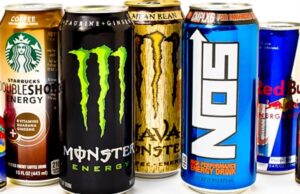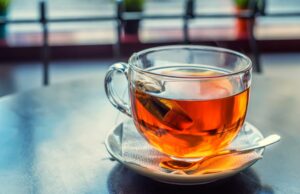Brew Crew; Coffee, tea, and other healthy drink alternatives
By Linn Hoofnagle on October 30, 2012
So the leaves are falling, the frost is barely tinging the edges of the grass white and it’s getting pretty chilly outside. Sounds like the perfect time for a hot drink. Before reaching for your packaged instant hot chocolate, consider two healthy (and delicious) alternatives; coffee and tea.
First, coffee. What is it? Coffee is a brewed beverage prepared from the roasted beans of the coffea plant. It’s prepared through different methods of boiling or steaming in water to extract the flavor.
Despite whatever you’ve heard about the “dangers of coffee consumption,” the benefits far outweigh the risks. Firstly, frequent drinkers of coffee are less likely to develop type 2 diabetes. Coffee is full of antioxidants, which prevent tissue damage by dangerous molecules called oxygen-free radicals. Chemicals in coffee also assist the body in using insulin, which controls blood glucose levels.
Coffee has been proven to lower one’s risk for heart attacks and strokes. It cuts down chances of developing type 2 diabetes, and type 2 diabetes makes heart disease and stroke more likely. Among other things, coffee decreases one’s chance of liver cancer and Alzheimer’s disease.
And all of that’s not even including the smaller facts, like one cup of black coffee contains only 7 calories, and caffeine makes you more energetic and focused.
“I do drink [hot drinks] for health,” said Senior Margarita Meza, who reported drinking one to two cups of coffee daily. “Hot drinks help keep your stomach full, so I eat less… [caffeine] effects my mood [and] stress levels.”
Of course, everything in moderation. Over consumption of caffeine can cause insomnia, difficulty concentrating, irritability, and even slight addiction. “I have a high tolerance for caffeine, so I have to consume a lot of it. I get headaches without it, so I guess I am addicted,” Meza said. Another senior, Shirley Speckerman, could relate. Speckerman reported drinking around four cups of coffee a day. Both she and Margarita Meza started drinking coffee when they began high school to fight fatigue and haven’t stopped since.”Whenever I feel myself crashing, I [have another coffee,]” she said.
Caffeine in large doses may also cause a greater risk of miscarriage in pregnant women. Caffeine is a diuretic as well, causing your metabolism to speed up. Regular consumption of large amounts of a diuretic can cause dehydration, so exercise caution.
Cozy up with this fragrant brewed beverage every now and then with the proud knowledge that you are doing your heart, liver and brain a favor.
Now, what is tea? It’s one of the most frequently consumed beverage in the world, second only to water. It’s prepared by steaming or steeping crushed, cured, or fermented plant leaves.
Due to the fact that there are many types of tea, I’ll cover some of the most popular.
– Green tea is made with steamed tea leaves. Green tea is abundant in antioxidants, fighting off cancers such as breast, lung, stomach, bladder and pancreatic cancers. It also prevents clogging of the arteries and counteracts certain stressors on the brain.
– Black tea is made with fermented tea leaves and has a high caffeine content. Studies have indicated that black tea may defend lungs from the negative effects of cigarette smoke.
– White tea is completely uncured and unfermented. This tea has the strongest link to anticancer properties.
– Chamomile tea is made from the chamomile flower. It contains certain antioxidants that help with diabetes, loss of vision and nerve and kidney damage. It also appears to stunt the growth of cancer cells.
“I drink tea more often,” Meza said. “Tea relaxes me… I can’t tell you that I love one more than the other. It’s like music, it depends on my mood or environment. I do prefer loose tea or flower teas, but the tea bags are convenient and I can’t just bring my teapot to brew anywhere!”
Both Speckerman and Meza reported cultural flourishes in their tea consumption, as well. Margarita feels the ties to her family and culture.”I have [been drinking] tea ever since I was a little girl. It’s a cultural thing in Chile. After every meal, you must have tea and a small sweet with it.” Speckerman discovered facets of culture revolving around tea on her trip to Kenya this Summer. “”I like nothing better than the chai of the Aberdare Mountains in Kenya,” she said.”In Kenya, [despite] how much money you have… every guest [in your house] gets a mug of chai tea. I [visited many houses] while I was there… and I was always given a cup of chai.”
A few warnings for the aspiring tea drinker; firstly, avoid instant tea. Instant tea often contains artificial sweeteners, an abundance of sugar, preservatives, or other undesirable ingredients. Secondly, watch out for comfrey, ephedra, willow bark, germander, lobelia, or chaparral teas. The FDA warns against these and other “dieting” teas.
Skip the sugary instant cocoas and mochas in these cold seasons. Brew yourself some coffee or tea and enjoy the taste and the abundant health benefits.
Search
News

Rocket League team advances to Nationals
Rusty Sheehan | May 31, 2024A little while ago, the beginning of the esports season was covered by the Tiger Hi-Line, including the rocket league team who, at the time, was in the process...
-
 Lana Greenleaf | May 29, 2024
Lana Greenleaf | May 29, 2024
HCC technology camps can expand young learners’ coding knowledge coding, more
-
 Lana Greenleaf | May 21, 2024
Lana Greenleaf | May 21, 2024
-
 Hanna Lane | May 21, 2024
Hanna Lane | May 21, 2024
-
 Lana Greenleaf | May 15, 2024
Lana Greenleaf | May 15, 2024
Incoming seventh graders can prepare for junior high with Boost
-
About
The Tiger Hi-Line Online is an award-winning creation produced by the journalism students at Cedar Falls High School. We produce written, photographic and video stories of the latest news around campus as well as teen-centered topics from around the world. The content is created entirely by students, primarily from the newspaper, broadcast and yearbook courses at Cedar Falls High School. Please email any story ideas to hilinestaff@gmail.com.Tags
2018-2019 2019-2020 alayna yates AOTW art artist of the week athlete of the week basketball books Cedar Falls High School CFHS choir Christmas college COVID donald trump Eden Davis entertainment Erin McRae feature Football games halloween home homecoming Iowa Jaden Merrick jared hylton movies music news opinion our view politics prom robotics Sabine Martin Sal Engle Skylar Promer Sophia Schillinger sports state Swimming video games volleyball




You must be logged in to post a comment Login